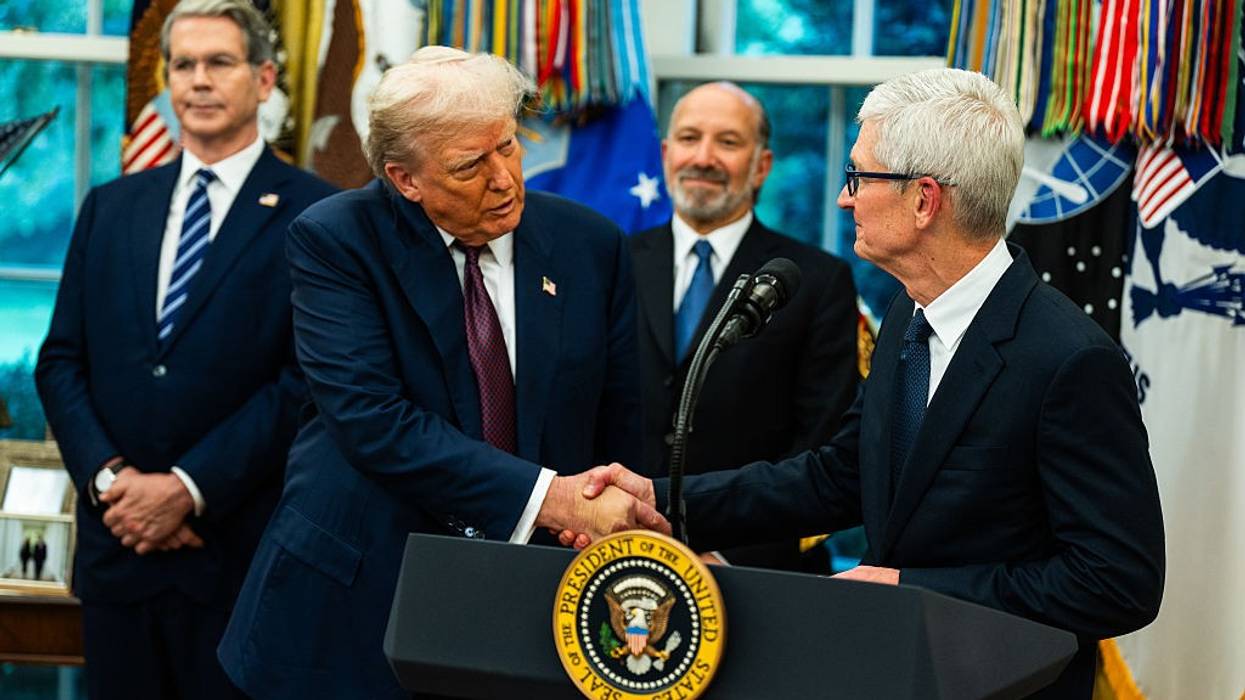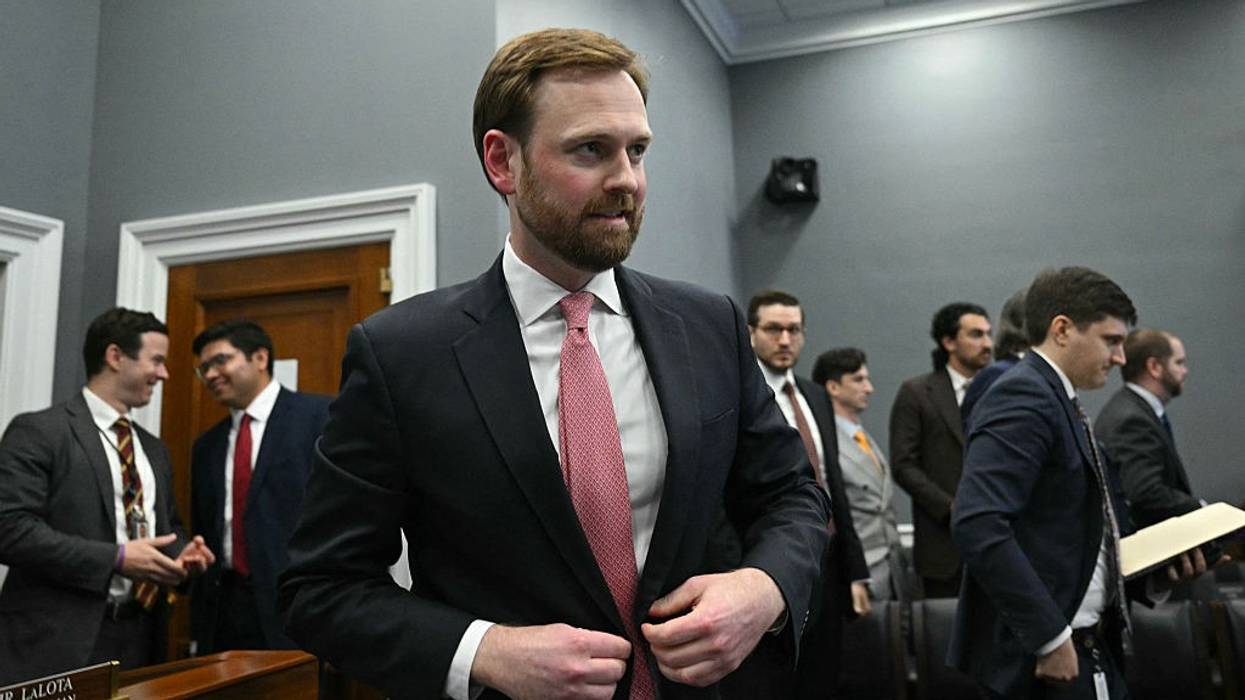Big Business Rejoices as Trump Scraps Biden Order Combating 'Excessive Concentration of Industry'
One critic called the president's move a "signal to monopolists that they have a clear path."
US President Donald Trump continued taking a hatchet to his predecessor's antitrust legacy this week by rolling back an executive order that affirmed the federal government's responsibility to "enforce the antitrust laws to combat the excessive concentration of industry, the abuses of market power, and the harmful effects of monopoly and monopsony."
Trump's revocation of former President Joe Biden's 2021 order drew enthusiastic applause from the largest corporate lobbying organization in the United States.
Sean Heather, the US Chamber of Commerce's senior vice president for antitrust, declared that by repealing the Biden order—which was titled "Executive Order on Promoting Competition in the American Economy"—Trump "has rightfully chosen vigorous competition that entrusts American consumers to pick winners and losers in the marketplace, not more government bureaucracy."
One anti-monopoly advocate, Matt Stoller of the American Economic Liberties Project, mockingly congratulated Trump for "securing the approval of the US Chamber of Commerce in repealing Biden's executive order saying competition is good."
The American Prospect's David Dayen called the president's move a "signal to monopolists that they have a clear path."
The president's decision was also welcomed by officials within the Trump administration who are tasked with enforcing the nation's antitrust laws, including Federal Trade Commission (FTC) Chair Andrew Ferguson and the head of the Justice Department's Antitrust Division, Gail Slater.
Ferguson claimed in a statement Thursday that the Biden order reflected the previous administration's "undue hostility toward mergers and acquisitions"—an assertion that Open Markets Institute legal director Sandeep Vaheesan refuted in a social media post, citing recent trends in merger enforcement actions.
Andrew Ferguson's claims re Biden admin are disconnected from the truth
- "Top-down competition regulations" were agencies reviving dormant statutory powers granted by Congress
- "Undue hostility toward M&A" is just not reflected in numbers on mergers and enforcement activity https://t.co/eHFyBm9tVk pic.twitter.com/PvCcsmvV8q
— Sandeep Vaheesan (@sandeepvaheesan) August 14, 2025
Biden administration antitrust officials—principally former FTC Chair Lina Khan and former DOJ Antitrust Division head Jonathan Kanter—drew praise across the political spectrum for combating corporate abuses and unlawful consolidation.
But during the first six months of his second term, Trump and his handpicked agency heads have settled or dropped key merger challenges brought by the Biden administration, ceding repeatedly to well-connected corporate lobbyists and allowing giant companies such as UnitedHealth to continue absorbing their competitors.
According to a newly updated tally by the consumer advocacy group Public Citizen, Trump administration agencies have thus far dropped enforcement actions against at least 165 companies.
"Pro-monopoly and pro-concentration of corporate power and control. Those are the policies the Trump admin has espoused in firing fair competition enforcers and revoking an executive order to revitalize fair competition across markets," the Open Markets Institute said Thursday. "And prices are still sky high. No surprise."


